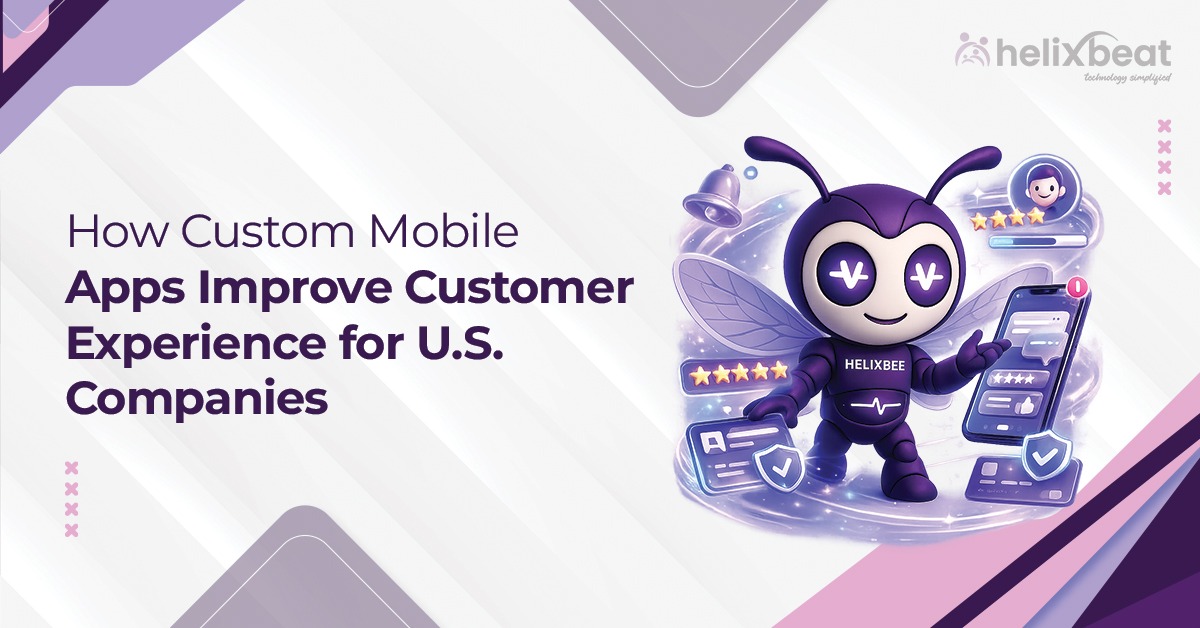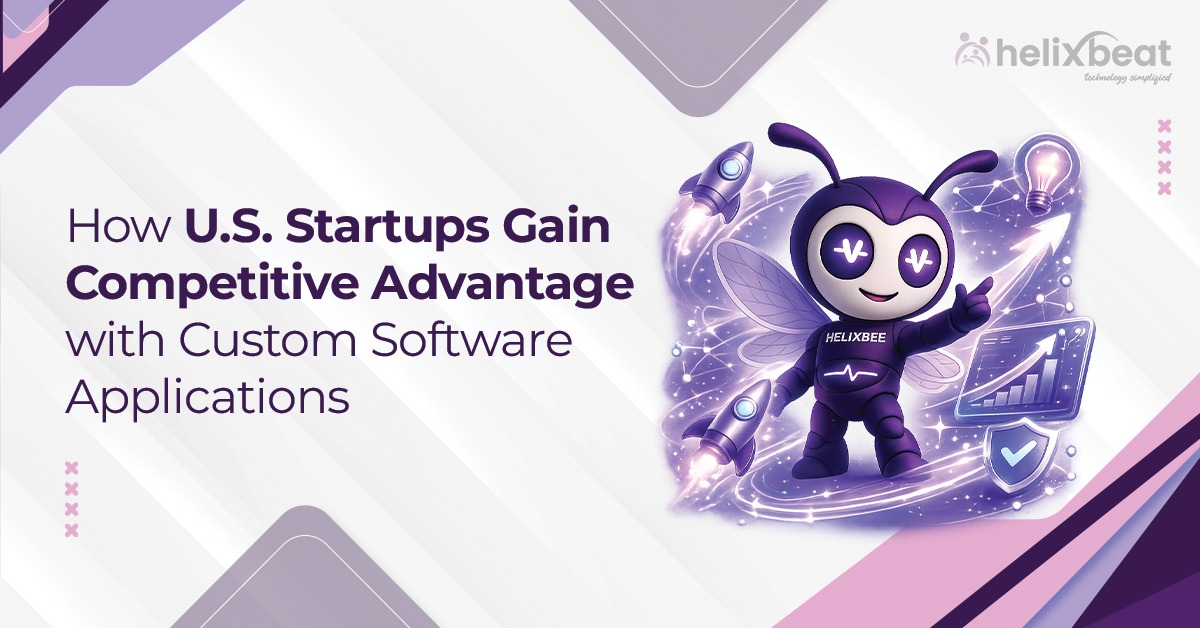Curious about the difference between SEO vs PPC?
Search engine optimization (SEO) is a digital marketing strategy that involves optimizing various elements of your website to rank higher in the organic search results while pay-per-click (PPC) is a digital advertising strategy that involves paying a fee to the search engine to display your website as one of the top results.
When it comes to SEO vs PPC, though, a lot of companies wonder which is better — SEO or PPC? If you’re asking the same question, you’re in the right place because this SEO vs PPC guide offers answers from helixbeat experts.
Keep reading to learn more!
Table of Contents
SEO vs PPC: The core differences between SEO vs PPC
When looking at SEO vs PPC, you have two differences to consider: Position and pricing. While PPC ads appear at the top of search results — above organic listings — you must pay for every ad click. In comparison, organic traffic from SEO is free, but your site appears below paid ads in search results.
When looking at SEO vs PPC, you have two major differences to consider: position and pricing.
- Position in Search Results: PPC ads appear at the very top of search engine results pages (SERPs), while SEO rankings are listed below them. This means PPC provides immediate visibility, whereas SEO requires consistent effort to rank higher over time.
- Cost Structure: PPC requires you to pay for each click, while organic traffic from SEO is free. However, SEO involves an investment in content creation, optimization, and technical improvements.
SEO vs PPC: A Quick Comparison
| Feature | SEO | PPC |
| Cost | Free traffic after investment | Pay per click |
| Timeframe | Take month to show results | Instant visibilty |
| Sustainability | Long term traffic growth | Stops when budget is exhuasted |
| Click-through rate | Higher over time | Can be lower due to ad fatigue |
| Conversation rate | User trust organic result more | Targeted ads can improve conversion |
| Competition | Can be difficult in competative niche | Outbidding competitors can be costly |
What is SEO?
Search Engine Optimization (SEO) is a long-term digital marketing strategy focused on improving your website’s organic ranking in search engine results. SEO involves optimizing various elements such as keywords, content, backlinks, site speed, and user experience to increase visibility on search engines like Google and Bing.
Pros of SEO:
- Long-term benefits with sustainable traffic growth: Unlike PPC, SEO ensures that once your website ranks well, it can attract a steady stream of organic traffic without additional advertising costs.
- Higher credibility and trust with users: Websites that appear organically in search results are often perceived as more trustworthy and credible than paid advertisements, leading to increased brand authority.
- Cost-effective strategy in the long run: While SEO requires an upfront investment in content creation, link building, and website optimization, it eliminates the need for ongoing ad spend, making it a more affordable option in the long run.
- Competitive advantage by ranking higher than competitors: If your website secures top rankings in search results, it naturally gains a competitive edge over businesses relying solely on PPC ads.
- SEO supports broader digital marketing strategies: By optimizing for search engines, businesses also enhance their content marketing, social media engagement, and overall online presence.

Cons of SEO:
- Takes time to see significant results: Unlike PPC, which delivers instant visibility, SEO efforts can take months before showing noticeable improvements in rankings and website traffic.
- Requires continuous effort and updates: Search engine algorithms change frequently, requiring businesses to consistently update and optimize their websites to maintain rankings.
- Highly competitive for certain industries and keywords: If your business operates in a saturated market, ranking for popular keywords requires extensive effort, high-quality backlinks, and well-structured content.
- No guaranteed rankings due to algorithm changes: Even with strong SEO efforts, Google’s algorithm updates can unexpectedly impact your rankings, requiring adaptability and strategy adjustments.
- Requires technical expertise and ongoing maintenance: Effective SEO demands technical knowledge in areas such as website structure, schema markup, mobile optimization, and link-building strategies.

What is PPC?
Pay-Per-Click (PPC) advertising is a paid marketing strategy where businesses bid on keywords to display their ads at the top of search engine results. Advertisers pay a fee each time a user clicks on their ad, ensuring that they receive immediate traffic to their website.
Pros of PPC:
- Immediate results with instant website traffic: PPC ads go live as soon as the campaign is launched, bringing immediate visitors to your site, unlike SEO, which takes time to gain traction.
- Highly targeted advertising with precise audience segmentation: PPC allows advertisers to fine-tune targeting based on factors like location, device, demographics, interests, and user behavior, ensuring relevant audience reach.
- Full control over budget and spending adjustments: Advertisers can set daily, weekly, or monthly ad budgets and modify spending based on performance, ensuring optimal use of marketing resources.
- High conversion potential with strategic ad placements: Since PPC ads appear at the top of search engine results, they attract users with high intent, leading to increased conversions and direct business leads.
- Flexibility to test and optimize ad campaigns quickly: PPC campaigns can be adjusted in real time, allowing marketers to refine ad copy, change bidding strategies, and optimize performance on the go.

Cons of PPC:
- Requires continuous investment to maintain traffic: Unlike SEO, which can generate lasting organic traffic, PPC stops delivering results the moment you pause or stop funding campaigns.
- Click costs can be high, especially in competitive industries: Industries with high competition face expensive cost-per-click (CPC) rates, making PPC a costly approach for businesses with a limited budget.
- Potential for wasted budget if campaigns are not optimized correctly: Without proper keyword research, ad targeting, and bid management, businesses can end up paying for clicks that do not convert, leading to financial losses.
- Users may develop ad blindness and ignore paid results: Many users consciously skip over paid ads and prefer organic search results, making SEO a necessary complementary strategy.
- Constant monitoring and management required for success: PPC campaigns demand ongoing supervision, bid adjustments, and optimization to maintain efficiency and avoid overspending.

When to Use SEO vs PPC
Choosing between SEO vs PPC depends on your business objectives. Here’s a simple guide to help you decide.
Opt for SEO if:
- You have a limited budget and want sustainable traffic: Unlike PPC, which requires continuous spending, SEO brings in organic traffic that doesn’t cost per click. If you want consistent, free traffic over time, SEO is the right choice. Helixbeat has helped multiple businesses rank on Google’s first page using proven SEO strategies.
- You’re focused on building long-term brand credibility and trust: High organic rankings establish your brand as an authority in your industry. For example, companies like Forbes and Wikipedia dominate search results because they have strong SEO foundations.
- You want to attract an audience that actively searches for information: If your business thrives on educational content and informative searches, SEO ensures users find your resources easily. For instance, a health and wellness blog gains organic traffic from users searching for fitness tips and diet plans.
- You aim to improve overall website usability and performance: SEO best practices, such as optimizing page speed, enhancing mobile-friendliness, and improving content readability, enhance user experience and increase engagement. Helixbeat’s SEO team ensures that all technical aspects are optimized to boost rankings.

Choose PPC when:
- You need immediate traffic and fast results: If you have a product launch, limited-time offer, or event, PPC ensures instant visibility and conversions. For example, an eCommerce store running a Black Friday sale can leverage PPC ads to drive traffic and sales quickly.
- You want precise control over audience targeting: PPC allows you to tailor your campaigns to specific demographics, interests, and search intent, optimizing conversion rates. Helixbeat’s PPC experts can create highly targeted campaigns to ensure maximum ROI.
- You have a competitive product that needs market exposure: New or niche products benefit from PPC ads as they provide instant exposure to potential customers. For instance, a startup launching a unique software solution can use PPC ads to generate brand awareness.
- You need measurable and trackable performance metrics: PPC provides real-time data, allowing you to assess ad effectiveness, cost per conversion, and overall campaign ROI. Helixbeat’s PPC services include detailed analytics reports to track your campaign performance.

The ideal approach depends on your goals, budget, and timeline. In many cases, combining both SEO vs PPC yields the best results.
Final Verdict: SEO or PPC?
There’s no one-size-fits-all answer. If you have time and want long-term benefits, focus on SEO. If you need fast results and have the budget, invest in PPC. The best strategy? Use both to maximize traffic, conversions, and ROI.
Need Expert Advice?
At Helixbeat, we specialize in digital marketing strategies that blend SEO vs PPC for maximum impact. Whether you want to dominate organic rankings or get instant traffic with PPC ads, our experts are here to help. Contact Helixbeat today and let us take your digital marketing to the next level! And stay tuned for more information.
Frequently asked question
1. What is the main difference between SEO and PPC?
SEO focuses on optimizing a website to rank organically in search engines, while PPC involves paying for ads that appear at the top of search results.
2. Which is better for a small business, SEO or PPC?
It depends on your goals. SEO is ideal for long-term growth and brand credibility, while PPC is great for instant visibility and quick conversions.
3. How long does it take to see results from SEO?
SEO results take time, usually between 3 to 6 months, depending on competition and strategy. Helixbeat’s SEO services ensure steady, sustainable growth.
4. How much does PPC cost, and is it worth it?
PPC costs vary based on industry, competition, and bidding strategy. Helixbeat’s PPC services focus on cost-effective campaigns that maximize ROI.
5. Can I use SEO and PPC together for better results?
Yes! Combining SEO for long-term growth and PPC for immediate traffic can drive maximum visibility. Helixbeat specializes in integrated digital strategies.
6. Does PPC guarantee more conversions than SEO?
Not necessarily. While PPC targets specific audiences quickly, SEO builds trust and credibility, leading to higher conversions over time.
7. What are the risks of relying solely on PPC?
PPC requires ongoing investment, and costs can add up quickly. If your budget runs out, traffic stops. That’s why Helixbeat recommends a balanced approach.
8. How do I know which strategy is right for my business?
Your choice depends on your goals, budget, and industry. Helixbeat’s marketing experts can analyze your business and create a customized SEO and PPC plan.
9. What makes Helixbeat’s PPC services different from others?
Helixbeat’s PPC services focus on data-driven strategies, precise audience targeting, and continuous optimization to maximize ROI and reduce wasted ad spend.
10. How does Helixbeat ensure long-term SEO success?
Helixbeat’s SEO services include in-depth keyword research, high-quality content creation, technical optimization, and link-building to ensure sustainable rankings.














